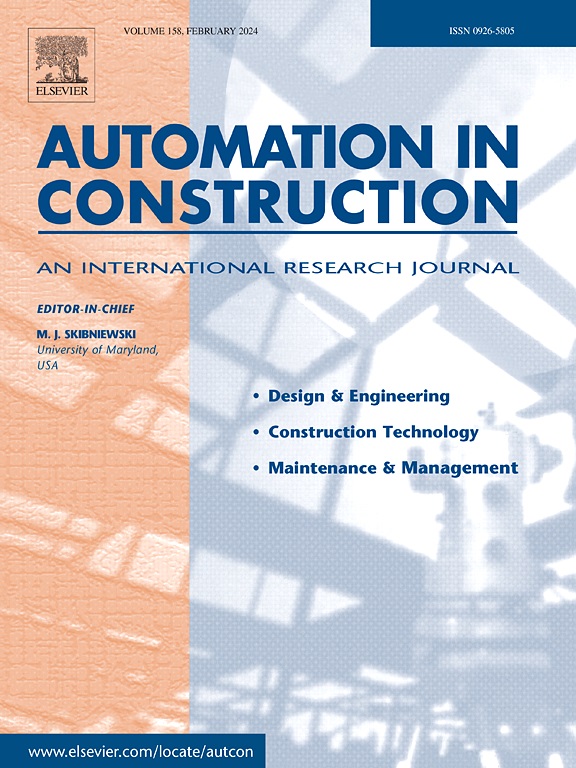Optimizing asphalt compaction: Vibratory roller amplitude and predictive modeling
IF 9.6
1区 工程技术
Q1 CONSTRUCTION & BUILDING TECHNOLOGY
引用次数: 0
Abstract
Effective compaction quality significantly impacts pavement durability and performance, with uneven compaction often resulting from traditional empirical approaches that adjust vibration modes and rolling periods. This paper investigates the effects of vibratory roller amplitude optimization on asphalt pavement compaction and develops predictive models for intelligent compaction (IC) parameters and in-place density using machine learning (ML) methods. Results indicate that higher-amplitude vibration passes yielded higher average intelligent compaction measurement values (ICMVs) and in-place density. Predictive models were developed using XGBoost and CatBoost, optimized through the Bayesian Optimization Algorithm (BOA). Among them, the XGBoost models achieved the best performance in predicting ICMVs and non-nuclear density (NND) values, demonstrating high accuracy (R2 = 0.9362, 0.9916) and low error (RMSE = 4.5678, 1.1934) during validation. These findings have significant implications for compaction quality control and provide a foundation for future research to enhance predictive models for ICMVs and NND under diverse construction conditions.

优化沥青压实:振动压路机振幅和预测模型
有效的压实质量对路面的耐久性和性能有显著影响,而传统的经验方法往往是通过调整振动模式和滚动周期来导致压实不均匀。本文研究了振动压路机振幅优化对沥青路面压实的影响,并利用机器学习(ML)方法开发了智能压实(IC)参数和就地密度的预测模型。结果表明,较高振幅的振动通道产生较高的平均智能压实测量值(icmv)和原位密度。利用XGBoost和CatBoost建立了预测模型,并通过贝叶斯优化算法(BOA)进行了优化。其中,XGBoost模型对icmv和非核密度(NND)值的预测效果最好,在验证过程中具有较高的准确度(R2 = 0.9362, 0.9916)和较低的误差(RMSE = 4.5678, 1.1934)。这些发现对压实质量控制具有重要意义,并为未来研究增强不同施工条件下icmv和NND的预测模型奠定了基础。
本文章由计算机程序翻译,如有差异,请以英文原文为准。
求助全文
约1分钟内获得全文
求助全文
来源期刊

Automation in Construction
工程技术-工程:土木
CiteScore
19.20
自引率
16.50%
发文量
563
审稿时长
8.5 months
期刊介绍:
Automation in Construction is an international journal that focuses on publishing original research papers related to the use of Information Technologies in various aspects of the construction industry. The journal covers topics such as design, engineering, construction technologies, and the maintenance and management of constructed facilities.
The scope of Automation in Construction is extensive and covers all stages of the construction life cycle. This includes initial planning and design, construction of the facility, operation and maintenance, as well as the eventual dismantling and recycling of buildings and engineering structures.
 求助内容:
求助内容: 应助结果提醒方式:
应助结果提醒方式:


